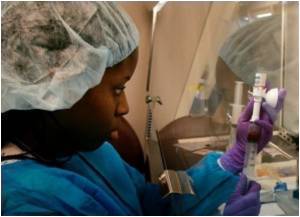Researchers in a recently study have identified a glue-like substance that can make cancer treatment easier.

The researchers said the drug could force the proteins to the cell's membrane (a.k.a., the edge of the sink), and make the cancer cell more vulnerable to chemotherapy.
"This is a totally new approach to cancer therapy," Professor Patrick Gunning of the Department of Chemical and Physical Sciences, said.
"Everything prior to this has targeted functionally relevant binding sites. Our approach inhibits the mobility of cancer-promoting proteins within cells-essentially, it's like molecularly targeted glue," he explained.
The "glue" is shaped like a dumbbell: at one end is an anchor that sticks to the membrane, and at the other is a molecule that binds to the cancer-promoting proteins.
The anchor is a cholesterol molecule that is well known to chemists for sticking to cell membranes. The protein recognition molecule is fairly picky about what it will bind to, reducing the risk of drug-related side effects.
Advertisement
"We are really excited about the potential for this type of drug," Gunning, who developed the concept along with Professor Claudiu Gradinaru at U of T Mississauga and Professor James Turkson at the University of Central Florida, said.
Advertisement
Source-ANI














